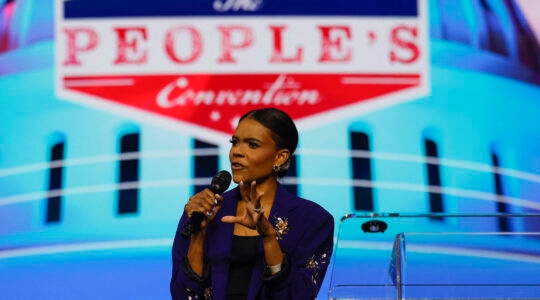President Obama defended his proposal to reduce the charitable tax deduction for wealthy taxpayers at last night’s press conference, saying it shouldn’t affect charitable donations. But in this morning’s Washington Post, prominent economist and Harvard University economics professor Martin Feldstein says he’s wrong and urges the president to withdraw the proposal. Feldstein, who sits on Obama’s Economic Recovery Advisory Board, calls it an tax on charities which would reduce "their receipts by a dollar for every dollar of extra revenue the government collects":
The proposed tax change would apply to married couples with incomes of more than $250,000 (and single people with incomes greater than $200,000). Under current law, such couples can deduct the value of their charitable gifts from their taxable income. While no one makes a charitable contribution to get a tax deduction, the deductibility of charitable gifts reduces the cost of giving and therefore increases the amount that individuals give.
Consider: A high-income person paying taxes at a 35 percent marginal rate lowers his tax bill by 35 cents for every dollar that he contributes to a charitable organization. The net cost to the individual is 65 cents for every dollar received by the charity. A substantial body of economic research shows that, on average, each 10 percent reduction in the cost of giving raises the amount that a person gives by about 10 percent. So, the 35 percent reduction implied by current deductibility rules raises the amount of charitable giving by about 35 percent.
The administration’s plan would limit the amount that high-income individuals could deduct to 28 percent of their gifts, down from 35 percent, even though their incomes would still be taxed at a higher marginal rate. This raises the cost per dollar of giving from 65 cents to 72 cents, an increase of 10.8 percent that can be expected to reduce the total giving of these donors by about 10 percent.
What would this mean in practice? Suppose someone would give $10,000 to a university if that amount were deductible at 35 percent. That deduction would reduce the individual’s tax bill by $3,500. Limiting the deduction to 28 percent would lower the individual’s tax saving on a $10,000 gift to $2,800.
This is where things get interesting: If the 10 percent increase in the cost of giving caused the person to reduce his gift by 10 percent, to $9,000, his tax savings would be 28 percent of $9,000, or $2,520. The government’s revenue loss would be reduced by $980 (from $3,500 to $2,520). The person’s gift to the university would be reduced by $1,000, almost the same amount. Since this high-income person would pay $980 more in taxes but give away $1,000 less, he would end up with an extra $20 for personal consumption.
This is a hypothetical example, but the responsiveness of giving and tax revenue reflects the evidence regarding how people respond to changes in tax rates. The congressional Joint Committee on Taxation estimated that in 2007 the charitable deductions of those with incomes over $200,000 reduced government revenue by some $23 billion. If the 28 percent limit had been in effect that year, the $23 billion would have been cut by about $6.5 billion, and charitable giving would have been reduced by an approximately equal amount.
By 2011, the year in which the Obama administration proposes to start the new tax rule, the projected decrease in giving would surpass $7 billion. With the endowments of charitable institutions sharply reduced by the fall in stock prices, this loss of gifts would make an already bad situation worse.
And here’s Obama’s defense of the proposal last night:
QUESTION: Mr. President, are you — thank you. Thank you, Mr. President. Are you reconsidering your plan to cut the interest rate deduction for mortgages and for charities? And do you regret having proposed that in the first place?
OBAMA: No, I think it’s — I think it’s the right thing to do, where we’ve got to make some difficult choices. Here’s what we did with respect to tax policy.
What we said was that, over the last decade, the average worker, the average family have seen their wages and incomes flat. Even in times where supposedly we were in the middle of an economic boom, as a practical matter, their incomes didn’t go up. And so, well, we said, "Let’s give them a tax cut. Let’s give them some relief, some help, 95 percent of American families."
Now, for the top 5 percent, they’re the ones who typically saw huge gains in their income. I — I fall in that category. And what we’ve said is, for those folks, let’s not renew the Bush tax cuts, so let’s go back to the rates that existed back in — during the Clinton era, when wealthy people were still wealthy and doing just fine, and let’s look at the — the level at which people can itemize their deductions.
And what we’ve said is: Let’s go back to the rate that existed under Ronald Reagan. People are still going to be able to make charitable contributions. It just means, if you give $100 and you’re in this tax bracket, at a certain point, instead of being able to write off 36 percent or 39 percent, you’re writing off 28 percent.
Now, if it’s really a charitable contribution, I’m assuming that that shouldn’t be the determining factor as to whether you’re giving that $100 to the homeless shelter down the street.
And so this provision would affect about 1 percent of the American people. They would still get deductions. It’s just that they wouldn’t be able to write off 39 percent.
In that sense, what it would do is it would equalize — when I give $100, I’d get the same amount of deduction as when some — a bus driver who’s making $50,000 a year, or $40,000 a year, gives that same $100. Right now, he gets 28 percent — he gets to write off 28 percent. I get to write off 39 percent. I don’t think that’s fair.
So I think this was a good idea. I think it is a realistic way for us to raise some revenue from people who’ve benefited enormously over the last several years.
It’s not going to cripple them. They’ll still be well-to-do. And, you know, ultimately, if we’re going to tackle the serious problems that we’ve got, then, in some cases, those who are more fortunate are going to have to pay a little bit more.
QUESTION: It’s not the well-to-do people. It’s the charities. Given what you’ve just said, are you confident the charities are wrong when they contend that this would discourage giving?
OBAMA: Yes, I am. I mean, if you look at the evidence, there’s very little evidence that this has a significant impact on charitable giving.
I’ll tell you what has a significant impact on charitable giving, is a financial crisis and an economy that’s contracting. And so the most important thing that I can do for charitable giving is to fix the economy, to get banks lending again, to get businesses opening their doors again, to get people back to work again. Then I think charities will do just fine.
JTA has documented Jewish history in real-time for over a century. Keep our journalism strong by joining us in supporting independent, award-winning reporting.




